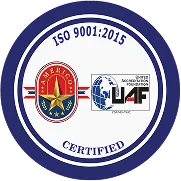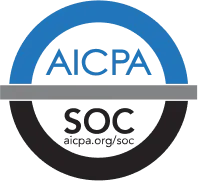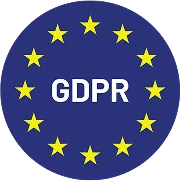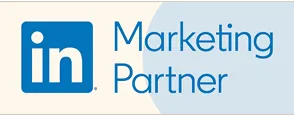Building Killer Sales Communities for SaaS
Learn how to build killer sales communities for SaaS. Explore strategies for enhancing your SaaS sales approach and fostering strong networks.
Priyanka: Cool. I guess we are live and yep, we are live. And if people have already tuned in if they can tell me if they can hear it as loud and clear, then we'll proceed with the life, but yeah, first of all, thanks for joining me today. Always good to talk to you. Sure.
Harsh: A pleasure, Priyanka. Thanks a lot for having me over.
Priyanka: No worries. I think people have tuned in. There's definitely a 10 seconds lag. It'll just take some time for us to get those responses.
People can just put in a comment that tells me that I'm live. Otherwise one like what happened is that we were just talking to each other and we were like, and we had to restart after 20 minutes. Yeah I don't want that to happen. pEople are tuning in. Yeah. Guys, can I get just one confirmation if I am audible or not?
Then
Harsh: I'll start. I think you are. I just joined? No, I'm, yeah. No, I just joined, the live from LinkedIn page. Okay. Yeah. Okay. I could hear
Priyanka: it's good. Okay. I think IL has told that yeah, that I'm module. So I'll not waste more time and I'll just start with the proceedings. So thank you everyone who's tuned in.
Today I have Harsh with me. We'll talk about basically building communities for sales and how communities have shaped SaaS and the industry in general. plUs how is it beneficial for your personal brand for your business itself and so on and so forth. I let Harsh introduce himself.
So go on Harsh, the floor is yours.
Harsh: Sure. Thanks a lot Priyanka for having me. And wonderful to chat today. I'm really excited about this because again I've been passionate about building communities for the last two, two and a half years, I would say, and this is the first time probably I'm talking publicly, about the communities and.
How I built them and why they're crucial and things like that. And yeah, so hi everyone. This is Harsh Vardhan. I work in founder's office at a company called Storylane. We are into interactive demo space and on the side, I build communities, which was very obvious.
Priyanka: That's great. Also by the way, Storylane is a partner with Pathos.
I have to plug in Pathos wherever I go. So yeah, that's another obvious. So now let's move on to the proceedings. We'll speak about certain topics for the first 20 25 minutes. Then please do stay with us during that time. And then we'll take up all the questions you might have for Harsh, or regarding sales communities whatever.
so Now let's start from the basics. Okay. When you talk about communities, people do not take it as something essential or like necessary, right? People think that we will do it after a point of revenue or when we reach a certain growth stage, right? What do you what do you think of it?
And why do you think business communities have had a significant role these days in business? In revenue and growth, so on and
Harsh: so forth. Very interesting question because when companies are at early stage, normally their focus is, building a MVP, building a product that's that's selling basically getting that first customer, first five customers, first 10 customers.
And, that chase never stops. You go from zero to one, then one to 100. That race is there. But normally, the business owners and founders have this mindset that the term community or them having a community is the notion that they should follow at a much later stage, because that's not a priority right now.
The priority right now is to. Build a product to sell the product to raise funding to grow into more markets and all of that And, but I, do not agree with that because it makes much more sense if you are an early stage company to build a product that's recommended in inner circles that supported by your users that advertise for free because you don't have a lot of money, cash bandwidth in when you're in early stage.
So I would say, if. I was building, let's say a B2B SaaS company in this environment, in this, market, I would be, focusing on community as my a go to value creation space because, I would want to vow one customer or one prospect, or because again, founders sell.
To the inner circle first, they get their friends and family and, old colleagues bosses to, yeah, to try that product to give feedback and, then continue with developing from it. The initial social proof is built from inner circles. So why not, keep that inner circle pretty happy, get them together in one place.
And, Build a community out of it, which will grow. And these people who have joined early will somehow become the community OGs or the leaders where they will feel proud. For example, people who started using Notion in its super early days are really the OGs of today who, other people look for, let's say, Notion templates or, having Notion installed, even, Notion advisory is something which we are seeing these days, like people have become Notion advisors.
They'll help you set up Notion in your own workspace and guide you from the templates and all. Notion did recognize them. There's this guy called Ben Lang. He's the head of community at Notion. And these are products which kind of were built through the community for the community. There was much less, sales done.
I would say I read an interesting fact. I think, even up to million dollars of revenue notion was a pretty lean team, I think, 10 or 11 people team. Which was mind blowing because I imagine, nobody can have that much of a growth with just having, 10 people who are developing the product and doing all of that.
So I think, yeah, community is very necessary in, today's term and yeah, I think that's answer to your question.
Priyanka: So now going forward to what impact do they create, right? You can contextualize it according to your , you're a sales person, right? The impact communities have for you will be very different for a marketer, right?
So if you can shed some light on all these aspects of what sure communities actually do for the people who has created.
Harsh: Sure. So I think I'll just take it back like a couple thousand years when we were in Stone Age. So people, when, people Stone Age people, when they decided that they had to survive, they figured out a way that they had to live in communities because they had to take care of each other, protect themselves from, dangerous animals provide shelter for each other.
And all of that women from their own community men from their own community hunter became hunter and gatherers and biologically speaking, even though the evaluation has happened a lot, we at the core, we are very social animals. We want to live within communities. We want to find our tribe as the Gen Z definition is.
So you want to hang out with our tribe is, and talking about impact, I would say, it helps in a lot of different areas. One could be let's say networking, which is very obvious. You want to meet a lot of people, meet a lot of new people who are relevant and in your niche, who understand your day to day challenges, who understand your insider jokes, who understand what pain or, success you might be going through.
They are there to celebrate. So sometimes these unknown strangers come together and become Very familiar. For example, even if you look at a comment section, four or five of the people who are saying yes, or yay, happy to join, these all are from, the community that I started and, I didn't ask them to be here, but they are here because they wanted to be here because they feel a connection, right?
So I think that's the kind of impact our community creates. People start seeing, each other as in a brotherhood or a sisterhood. So networking. Personal growth where, a person understands a certain topic from few different lights. Like they had their own mindset about, let's say, how a salesperson grows their career, whether to, become an AI from an SDR or to go into DevOps enablement, or, do a complete shift and let's say, go into marketing.
They, these are the thoughts and questions they were, having in their own mind and. It was just driving them crazy, but having different people telling them, their own stories, giving examples, or, just warning them. So that's something which helps along the way. So again, the personal growth, networking and then again, the by products are better job opportunities and fun people, that a lot of people talk about different things.
And sometimes they connect totally different on totally different topics. Like they might connect on, a conference, they might connect on a movie, they might connect on a mean that has been going around and yeah, I think. That's what makes us human.
Priyanka: That's right. And that's a very comprehensive answer.
Actually. I thought you'd say something like, Oh, it helps me sell better but
Harsh: No, not the by products. Yeah.
Priyanka: But the actual and the bottom line impact is. Very human and mostly to build relationships that ultimately give you those collaterals like better sales or better networking and all of that.
Yeah. I
Harsh: would say relationships and sense of belongingness. Because we humans always crave this that I want to be, let's say, I'm sure this must have happened with us also that we want to be in the groups of popular kids back in school or college. So that sense of belongingness, we always wanted to crave and feels good to be at a place where you know, Everyone is like you in one way or another.
Priyanka: Yeah I like how the conversation is going and probably you were the popular kid at school,
cool so you mentioned about finding where your tribe hangs out, right? How do you find them very naturally? How do you find your tribe?
Harsh: For example, when I started out in sales, I wanted to, join communities where I couldn't interact with other salespeople. I didn't know of any I started again, actually Googling it.
I started searching, are there any sales communities and things like that. I stumbled upon the first community, which is again, a very popular by Jared Robin, Rev Genius. Okay. I joined RevGenius and then I joined SalesRebels, and then I joined HPYCCL. Then I went on a spree of joining communities because I wanted to see what different flavors these different communities are bringing, even though all of them are in sales, how are they, different from each other?
How are the people different? How are the tone of, conversation is different. What kind of opportunities, probably, maximize my chances. Let's say if I was. Looking for a job switch. I, if I was active in more communities, that was the mindset I had would give me much more boost.
It is true, but it's not also true. Having more of something just feels good that, we have that abundance mindset again, going back to hunter gatherers, we need to have, a lot of food so that if we don't get food in one day, we still survive. So we have that abundance mindset, but that also creates noise.
And that is what is happening with all those communities. And I asked this, there was this webinar happening with Jared Robin himself, I asked this question to Jared Robin, that how do maintain the quality of conversation versus scale? And he gave a pretty good answer. And I also see, all these huge communities struggling into that, but coming back to the question, which was like, how do you find it?
You find it through, again, your natural super search engine, which is Google. You find it through people recommending it. The communities usually grow by word of mouth. I keep getting requests like, I want to add my friend. I want to add my colleague in this community. Give me the link.
Something like that. People see on LinkedIn.
But where somebody has given a shout out, they really like being there. And that's how I think, and even in this, there is an inbound and outbound effort that could be, done and outbound effort again, quoting Jared Robin here, he, in the early days, used to email thousands of people personally to have them join the community.
So probably that approach, also takes care of, you knowing that a community like this exists, somebody will pop up in your inbox someday. So you'll know that this exists. But yeah, other than that, again it's hard to find those communities until you know somebody from that circle, until you know somebody who has been there or until you come across any infographics.
So yeah, that's the easiest way of, discoverability.
Priyanka: So harsh you run two communities, right? If you can name all of them.
Harsh: Sure. So we started one, which was called unfair advantage. This was back back in 2020, 2021. And this was just to cater to. SDRs and account executives of B2B SaaS space it's an invite only underground community.
We intentionally didn't want it to grow because we wanted to test things out. We wanted to understand if, we bring a curated small group of people together. So there was no LinkedIn page. Still isn't, but a lot more people know about it because we kept started talking about it. There were branches which were happening, where people used to come together in an offline space, but those are again for the community only.
And then recently we started opening them up so that we can recruit more people. More people can get to know and have their unfair advantage as we say. Second one is, which we started recently it's been like six to eight months. It's called sales 101. It's a WhatsApp group, much more dynamic open to B2B and B2C Persona of sales as well.
So all of them are welcome there But again, we are mostly focused on hunter and gatherers rather than farmers again, there is a segregation in sales hunter and gatherers are like strs and a even farmers are I'm just clearing out for the audience how much I like account managers and customer success managers.
So we are more focused on hunter and gatherers because that's how, that's who we are. We understand that profession, that line of work and we want to build a niche in that.
Priyanka: Yeah that's great. That's great. I think now how can you create your own community? My point of asking this question was.
Harsh: It might feel like I'm quoting Jared Robin a bit more, a bit lot, in this, but again, I think that webinar had, has left an impression on me and cleared a few things. Again, the guy has a lot of experience in building communities. He said something which I was doing, without even understanding that this is something which I should be doing.
He said, again, minimum by build minimum viable communities. So MVC, so if let's say you for example, somebody in the audience might be a salesperson who is working in in a company called, let's say, scrut or, other banter or companies who specialize in soft two or security administration.
And he or she wants to build out a community where he or she is interacting daily on a regular basis and getting value from these security leaders or CISOs, or, people who look after all of these and would be buyers for them, they should start small. They should start with, let's say, again, three people, four people uh, tell them that, you want to bring these people together.
The agenda is to create value amongst themselves. Because there would be a gap, there would be even these leaders looking for other leaders to have suggestions because again, you have to see it from their mindset when you rise yourself up to the level of leaders and see what their challenges are, how they are functioning in day to day.
I recently started seeing that these leaders also converse with a lot of fellow leaders because they get new problems and asking somebody has solved them already. Helps asking, if the industry is going in some particular trend, helps asking, asking things, make help, helps them make proactive decisions.
So these leaders become better leaders for their own company. If they are talking to other leaders and, if, you figured out that there is a gap that, that bridge is not happening smoothly. You reach out to five security leaders, tell them that, you're going to bring into a small, cute little one.
where they can talk to this and this. So folks, you've also reached out to them and. You guys will have knowledge exchange and something like that. So let's see, how people are reacting to it. If there's actually a need that people do want to, come together and understand challenges together, solve things together, exchange learnings, or even, get benefit.
Finding, even the leaders find better job opportunities, right? They're also changing jobs. So I'm just giving a theoretical example, but if you had to build a community of your interest, your needs. Community building is hard. You can only build it where you are truly passionate about.
You have the knowledge of that, line, for example, I cannot build a community of doctors. I don't know anything about it. Probably I can, because again, I understand the basic framework. I won't be adding much as much value from my side. And initially that value outpour is needed for people to keep.
People to be in that space, because if let's say I started a community and I just went silent, like guys engage, just doesn't happen. You have to drive that engagement. As soon as somebody asks a question, you have to be there to answer that. Somebody is asking for a resource, an intro. You arrange that, you do it all for free.
You do it all spite of, nobody asked you, they asked the whole forum. Because you want them to feel valued because you want them to feel that there is a value in the group. They are respected here. They are somebody is working for them and then slowly builds some momentum that other people also start to chime in And help that's when the community goes on an autopilot mode So yeah, if you want to build your own community just start small Figure out a niche where you are interested and also have the expertise in You're passionate about and then, yeah, just add value,
Priyanka: right?
I think that was a great answer and totally agree. Community building is quite hard and and I think it's very hard to be available all the time as well. How do you manage that aspect? Do you have partners who do that with you or I'm sure it must be a group effort
Harsh: as well.
sUre. For example, if you talk about unfair advantage, there have been people who joined early as I was talking to you about that notion example, people who join a community early and are active throughout that they become your co partners and partners in crime, where they start taking up some responsibility of you and start evangelizing about the community, managing things, answering questions.
So yes, there are people, if you'd like me to name drop, I am happy to do there's Ashtar, there's Sridhar, yeah, there's Sridhar, there's Prakash Raj, there's Vamsi. Now I have to name them all because whoever I miss will, just bite me. So there's Sinead, there's Sai Prakash, and there's Anish, and a lot more people.
Again, I'll name you personally. Don't kill me, please. So yeah, there are people who help you in all of that. And again, it has to come through your, their own personal motivation. It can't be monetized. It can't be monetary driven because once you start that monetary driven relationship in the very beginning of the community there's not a relationship to it.
There's not a human relationship to it. Sorry. As soon as the money stops, they lose interest. And while building a community, it's not sure that you will bring money because the money comes at a later stage. If you were to monetize the community, it'll come at a later stage, not at the early stage. Early stage, you need people to believe in you.
And, Oh, okay. She's popping up.
Priyanka: Responded. Yeah, go ahead. Sorry, I had to bring that up.
Harsh: Yeah, initially it has to be. People to people, rather than, any kind of benefit that they can get. So it should be. My whole motive was it would be fun. It would be fun to have, a few people together.
We'll have fun. We'll laugh about things a lot. We'll share our internal jokes and we'll help each other. Yeah, because we all were figuring out a lot of things. We still are. But again, that has added a lot of advantage to understand how sales is working across different organizations, how sales leaders are, reacting to it, how the whole, let's say, again, we read all of this on LinkedIn, that outbounded It's getting noisy.
This is not working out. That is not working out. Here's my, 23 step same work. All of that gets internally dissected into these communities. It gets roasted. It gets, amplified. So that is where the whole fun is. Like even a framework people will bring in and out of the 23 steps if the two steps are very illogical They'll roast it out And that's where we will know that, not to follow these specific two steps because those don't these just don't make sense and again, at the end, it becomes a hiring portal people get better opportunities super quickly super easily Again, an added unfair advantage,
Priyanka: Nice. Nice. Nice answer. Just one thing for the audience. You can start asking your questions on the comments. I have a couple of more questions. Then I'll wrap up from my side and we'll take the questions. So now coming to the next part, right? When you when you say, uh, when you give that sales example, right?
I thought for sales people themselves, it's very important to be in a community. Which with like-minded people. La last live, I talked to Dave, right? And when and he constantly said that rejections is like 90% sales . And that is at best if you don't get 95% rejections all the time.
So having people who are in your health space and they know how sales works and they know that it's not like. Not normal to have these sort of days or weeks together where you don't get leads or your demos don't convert. Especially for these times for sales people uh, specifically something like your community is great.
And if you guys are. In the audience planning to join Hershey's community, DM him after the live. Yeah. So now one question from my side was you talked about invisible communities, right? While we were speaking today can you like, tell me what is your idea of it and expand on that?
Harsh: Sure. So when people hear a word community, Usually rings a bell. In business sense, if you hear of a community, so it will feel like somebody is creating a discord server. Somebody is creating a WhatsApp group. Somebody is creating a slack channel whatever, they're bringing them into A digital channel with your digital space where they all can be under one umbrella.
But that's not the case with each and every community. Sometimes the communities exist. They're just not into one place. So what that means is people, let's say, for example, have a product that they like so much and that product that brand or the company didn't really, care about creating a community or they didn't themselves, put efforts.
But people really love it. People have questions about, learning it, learning that tool, better, or, if they want to exchange what they have built. As a, as a way to get compliments, as a way to understand if they were on the right track or as a way to, understand gaps while they are using a certain specific tool.
So this invisible community gets built and it's spread across forums. It might be in your LinkedIn comment box. It might be in your LinkedIn DMs. It might be on a article that has been written on some forum and somebody signed up there and asked a question and somebody replied. It might be your inner circle where you know, your customers are hanging out.
For example, I didn't mean, in a circle where you have manifested that, but let's say for example, if you and I use the same tool and we meet in a conference, which is. It's totally organized by somebody else, some other brand, but we end up talking about that specific tool that we both use. We start discussing challenges, we start discussing, how it has been helpful and all of that.
Are you able to share our excitement? So that's what I'm talking about. That's an invisible community that, that Brian has come created and If, there are smart people in that brand that they realize that, there is an invisible community that exists, then normally what do is they pull out sponge and soak it up.
They create a space for them to bring in there. They incentivize them. They reward them. They feature them as the leaders at the OGs. Of those products and that kind of reward system works pretty well because people who were doing all the things for your brand without even, getting anything, when they get something out of it, it's a feeling, which is unparalleled.
So I think, yeah, that's what invisible community means.
Priyanka: Good answer. And I think that this was like quite eyeopening for me. Even like me, even though I don't have a community for myself. I look at my LinkedIn as a community, right? I know there are a bunch of people who constantly engage with me.
I can DM them anytime. I can call them for a live anytime. And one of them is you. Yeah, that's, uh, that's actually heartening to see that I haven't I didn't consciously create that community, but it's there. It's just, it's there even though it's a platform. Yeah yeah, I think Gagan has has a comment, which I can't see on the comment section.
So I'm just reading it out from my phone LinkedIn uh, what was the most challenging part and the most exciting part when you started building communities?
Harsh: Most challenging part is to, when you're starting building communities, I would say creating engagement because, I also want to do, we'll put a pin on this and we'll talk about it, how a personal brand helps you build a community.
We'll talk about that, but, taking a learning out of it. Like my personal brand was helping me get people in a space. Like I would tell you, Hey, bro, you should be on this community. I'm creating, I'm bringing people together. They'll agree. Because they know me from somewhere and somewhere because of the personal brand.
But after bringing them, the motivation necessarily fades away. They just don't know what to do. They need an orchestrator. They need a conductor to conduct things. So that's where, you have to take charge and you have to become something for them, which kind of sets the tone of the whole community.
And I think, the major challenge there also is. Understanding each and everybody, the early members that you bring in, if they have a common personality, very common personality, very common interests and motivations in life. It becomes super easy to, for you to orchestrate things because they all are aligning onto a common objective, but if that's not the case, you have to know that what are the challenges.
Let's say, for example, the 10 people I brought in my community for the first time, I would know that they do this and this job, they work in this and this company, they face this and this challenge. They have been talking to me about this and this, and probably this or this would help them. I have it all mapped out in my head and this is for all 10 people and then I'll start seeing start connecting the dots.
Let's say, for example, a person can help the B person in something. I'll just connect the dots right in front of the community so that the communities actually sees that there is a value getting built. And the A person and the B person are also very happy because they got to, solve each other's problem through this bridge.
And then when that aura is established, you start replicating it. Another 10 people that you add, you know about them. Another 50 that you add, you know about them. And yeah, sure enough, soon as you grow it's not only possible to know each and everybody's challenges, but. Till then you have added a few good enough people who again become mini orchestrators for you as I was talking before.
So they know somebody's challenges. They start connecting to people. That's where the magic and flow is.
Priyanka: Yeah, I think this should answer your question. I don't see, I see Harsha's question, but I, I don't understand how is it related to the point of talking? Maybe we can skip that, but if there are any other questions feel free to put it on the comments.
I had one more question, a question in follow up to, uh, what you have spoken right now, so your personal brand helping you in making communities, right? You, when you started when did you actually start thinking of? Building a personal brand and why was it important to you at that point of time that led you to carrying out communities or building communities, so on and so forth.
Harsh: So it's like a throwback into my past. If Netflix anytime agrees to make a documentary on it, I'm happy to, provide the script, but yeah Interestingly enough, when I started as an SDR, I came from an engineering background, I didn't even know that there were email patterns like first name dot last name at the rate company dot com something like that.
I didn't know. I just didn't know that this was the case. I didn't know that we can find emails for other people, phone numbers, let alone, call them or email them. I just wasn't sure what was going to happen when I will join sales. I just knew that I am good at talking to people. I am good at convincing them, but that just was not cutting it because let's say if you are connecting with this relevant stakeholder on LinkedIn.
And I started my job selling to enterprises CXOs and all of that. And when you are talking to the thought leadership itself, you have to come across as somebody who is valuable enough to talk, you have to come across who knows what they're selling, who knows their challenges, talks about that. They see that on their feed, they interact with that.
You interact with their feed and you post questions, which makes them even wonder. That in my last 20 years, I've been learning things. And this is something new that he has asked, or there's a different perspective. So when you start doing that, people start taking it seriously. So I think that's what hit me, that I had to build a personal brand because I wanted to hit my quota.
So that's where, the thing started. And then soon enough, I started realizing other benefits of it, which was, like all my job opportunities have been inbound. All the jobs that I've worked in have been in more people or founders or SVPs reaching out that, we want to hire you.
What do you want to work with us? Something like that. So it just reduces a lot. Again, everyone in the comments hating me for this is it's the real truth. Just appreciate the honesty. If you have a personal brand, things become pretty easy for you. Not saying, things haven't been hard, but.
Again, not as hard as somebody who didn't have a personal brand and was facing the same difficulties as I was. So that personal brand kind of gels it up. People again, there's a sense of I know you. So that sense for example, if Shah Rukh Khan comes knocking at your door and asks for, your bike, you'll probably give it.
Very stupid analogy, but again, you're like, I know Shah Rukh Khan. And you've never seen him, you've never talked to him, you've never even, he's never been to your hometown, whatever. But if, in the middle of the night, he comes and asks for your bike, you won't hesitate. You'll give it away just because you know that, him because there was a personal brand behind it.
Yeah, I think, coming back to the question, the personal brand did help in building community where I was asking people to come together under one umbrella. And they agreed because. They believed that, again, I know you, you keep doing some, interesting things. And if you are taking this initiative, it must be something good.
So that's how they, initial members came across.
Priyanka: Understood. Yeah. So
Harsh: you I think, I remember that you also asked how, why did you feel the need? And I think I answered it because, I saw there were very unfair advantages to building a personal brand and yeah, that's right.
The motivation.
Priyanka: That's nice. Actually, whoever has started off with sales rate now I'm doing marketing, but when I was the only reason we started writing on LinkedIn or being socially active. at least on social media was precisely because we wanted to know we wanted to connect with that prospects for sure.
But we also wanted to, I wanted our prospects to know that we are real people. And not like email IDs, which are like which are throwing them hundreds of cold emails and they don't have a face to them. So that is, I think the basic of building a personal brand, right? You just, you have to let the other person know that you exist in real and you have some value to add, and you're not just a email ID.
Bombarding their email address with 500 cold emails per day. Yeah, that's, that, that was a great answer harsh. Sri, there is a. Yeah. Yeah. Yeah. Yeah. What life experiences have oriented you to be so people friendly and willing to share, educate, and help others. Good question.
Harsh: Sure. I'll make this philosophical and psychological because that's how, it has become so growing up, I, you were saying, I must have been the popular kid.
It was completely opposite. I wasn't the popular kid. People just didn't want me in their group. It was something like that, people were bullying on that. And I so badly, wanted to be with them badly, wanted to go park with them, play with them, or hear their insider jokes, or, get compliments from them.
It created a void in me. I think that again, it could have gone good and bad both. I could have become a serial killer or, became this person who I am right now. Was that if, you don't as the chamat political, I'm just murdering his name, from social capital.
Says, if they don't let you sit on their table, get the money. Create another bigger table and get your people around that table. So I think that was something, something of that sort, came inside of, uh, inside from me. And I started thinking, that if they're not letting me into get into their groups, I'll find my own people.
As I said, finding your own tribe, I'll find who has the same challenges as me. I find the same people who have been rejected from these forums and they're not being invited there. I'll tell them to come here and we'll create that value. For ourselves and we will be, somebody who they will look after it.
So this happened way back in, in school and college. And it's, it was not like, somebody kicked me out of RepGenius, so I created this community. But uh, to answer Sridhar's question, to be people friendly and willing to share, educate, was, coming from my own personal challenges that I...
Was unable to find those mentors. I was unable to find those resources. And I think, if people are there where I was, back three years ago,
Priyanka: Yeah, of course we're now giving plots to Netflix, .
Harsh: Yeah. So people are there where I was. Yeah. So go. Sure, sure people are, if people are there, where I was three years ago and I can, even add a bit to that. I would love to do that. So that's where it, it became, and again, I'm very selfish in some ways also that because I get so much fun and excitement from talking to people and, it's a loop, I get fun.
So I talk a lot. Again, I talk a lot, so I get more fun. So I get fun. I get opportunities. I get compliments. And so the childhood traumas and insecurities get solved. So not the answer you might have been expecting either, but this is a reality. I am so people friendly and willing to share because I have childhood insecurities.
Priyanka: That's great. That was really heartening to listen to people usually turn the other way around and not the serial killer way. I'm not saying that. They become more unsocial, right? But and then, and circumstances can be different for people, but it's good how you channeled that energy into creating communities, giving knowledge for free, right?
It's it's quite heartening to listen to. And people who have missed this part on the line. have missed out on the on a very great story,
Harsh: which we'll release a clip.
Priyanka: Yeah I'll cut it. I'll cut it for sure. Yeah. I'm in the process of cutting eight more lives that I've done.
After that, I'll come to this. Yeah. And more to say, Yeah, he has. Yeah, I don't know if you guys have watched Raman Raghav, but this is a good analogy. Cool. I don't see any more questions on the comment box, but I'll still check on my phone because Throwing some issues at the last
Harsh: 44 minutes. I'm truly grateful and I don't expect you to be here any much longer. But yeah, if you are again pretty grateful.
Priyanka: Yeah, I think yeah, most of the there are no more questions though. So maybe we can wrap it up. So yeah, thank you everyone who joined us today. It was a great session. It turned out to be More philosophical than sassy, I would say.
Harsh: Yeah. Yeah. If you understand the human part of it, business is a byproduct.
Priyanka: Oh, you should have it on your,
Harsh: I should have, yeah. Get it printed. Wear it on t-shirt US is open for business. Okay. Should dropping off.
Priyanka: Okay. Bye. Yeah. Cool. I think we can wrap up. Thank you harsh for joining.
Thank you for your insights. Your story is great. You building communities is something that I really appreciate. And I don't think I have the energy or the internal will to do that on a consistent basis that you do. Yeah, mad respect for you. So thank you.
Harsh: I can't do this. I can't do this in a consistent life.
So yeah, we each have your, our own battles. So yeah, it's okay.
Priyanka: Thank you for saying this actually good validation for me. So I'll take up now and thank you everyone to join. Thank you, Harsha. I'll meet you all on the next slide. Thank you.
Harsh: Bye. Sure. Bye. Bye.
See Factors In Action
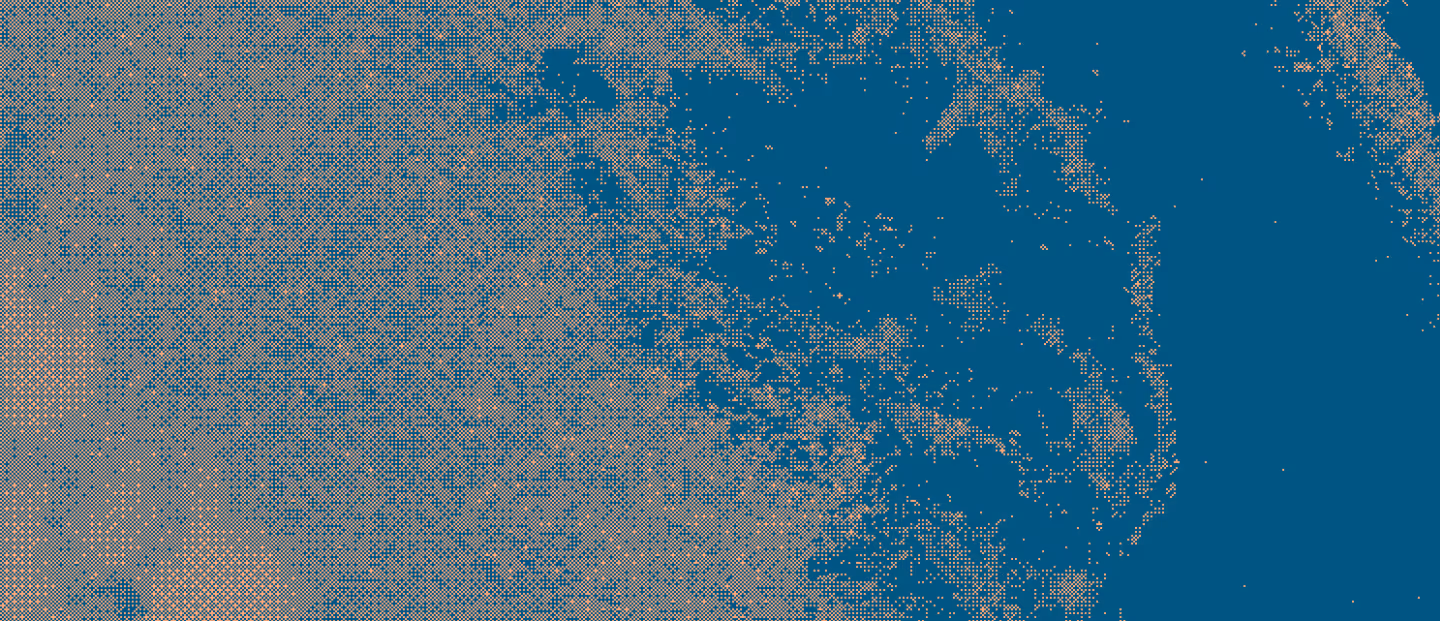
.svg)









